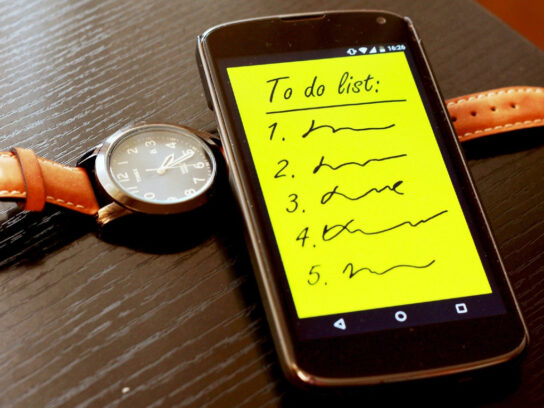
With the continued pandemic, most parents find themselves with their children and teens at home more than usual. In many instances, with balancing remote work and childcare responsibilities, it may be even more important than ever for children and teens to be more self-sufficient.
Since you are probably busy and don’t have time to read a long article, here are a variety of simple tips that you can use to help your child or teen be more self-sufficient.
- Help them to use alerts and notifications on devices/programs that they already use or have access to.
- Google calendar: even for elementary school aged children, if they are in front of the computer playing games, they can see the alerts go off. This program can be highly useful on a tablet or smartphone as well.
- Basic task list app: If your child/teen is on a computer, tablet, smartphone, or pretty much any electronic device, they have access to a task list app. Picking a simple one such as Reminders (Apple devices), Todoist, or Google Tasks could work well.
- For younger kids: There are many picture apps (and ones with simple words) that can work well for a calendar and tasklist/visual schedule for children as young as three. Of course, with young kids, electronics time should be somewhat limited, devices should be locked on the specific program, and auditory alerts can be useful so that a child does not even have to look at a device. A few suggestions include CW Calendar, Schedules, and KidsToDoList.
- Amazon Alexa: Use the app to set detailed auditory reminders. Encourage your child/teen to set their own notifications, timers, etc. by speaking to the device or create a child account and allow them to manage their own notifications with an app. If you have an Amazon Firestick (a streaming device for tv), alerts through Alexa can pause tv shows and really get a child or teen’s attention.
- Google Home or other personal assistants: Depending on how the account is set up, your child/teen could have their daily schedule read off to them or get notifications orally from the device as well as on certain electronic devices.
- Setup simple non-electronic systems
- A whiteboard in a central location with tasks, schedule, etc. could be helpful.
- Some children/teens find it useful to have a schedule/task list printed on paper and carry it around on a clipboard.
- Model some of these tools and naturally incorporate them into your child/teen’s life as feasible.
- For example, set alerts on Alexa that pertain to the whole family.
- Use a shared Google or Apple calendar and put events relevant to everyone on it.
- If you have family sharing on an Apple device, you should automatically have a shared family task list on the Reminders app. If you start using this, your child/teen will get automated reminders for things and may start using the app themselves as well.
Getting your child or teen to be more self-sufficient may not always be easy to do. However, by starting small, and giving them access to tools that they can use to help themselves, they are far more likely over time to make strides towards a greater level of autonomy.
Copyright 2020 Carey Heller, Psy.D.
*Disclaimer: The previous information is intended as general guidance based on my professional opinion, does not constitute an established professional relationship, and should not replace the recommendations of a psychologist or other licensed professional with whom you initiate or maintain a professional relationship*



